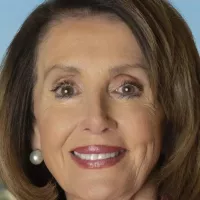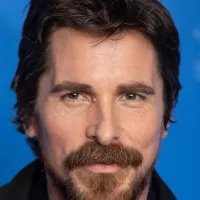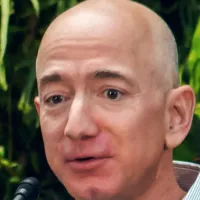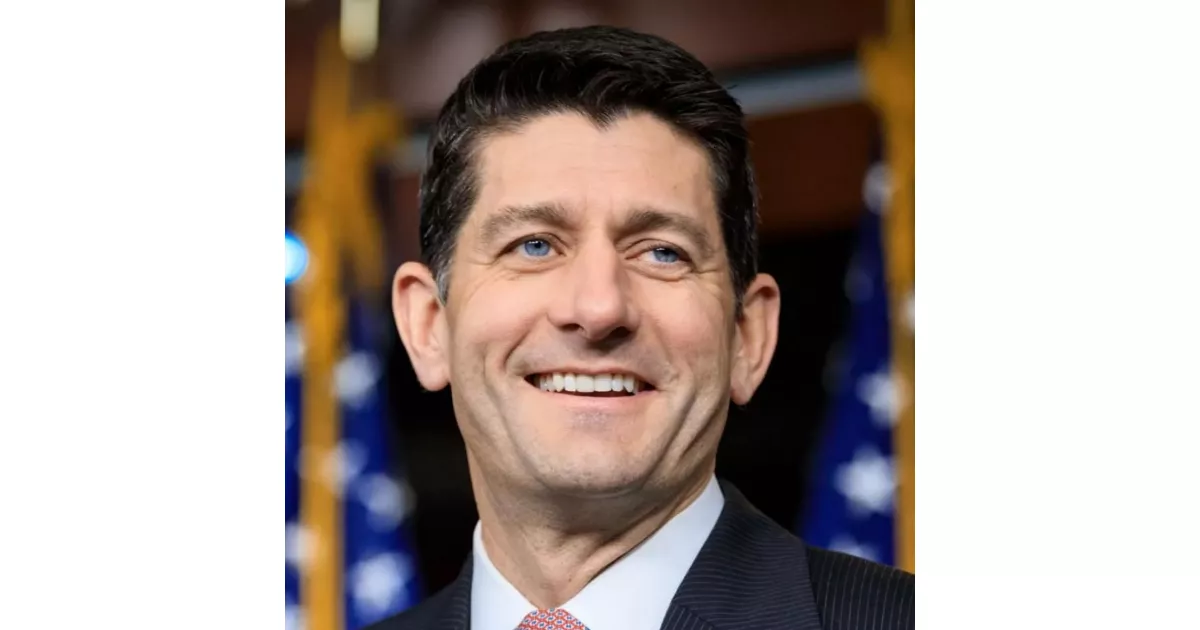Paul Ryan is an American politician prominent for his role as the 54th Speaker of the House from 2015 to 2019. A Republican, he previously served as his party's nominee for Vice President in 2012, running with Mitt Romney against incumbent President Barack Obama and Vice President Joe Biden. Ryan's career is largely defined by his leadership within the Republican party and his involvement in national political discourse.
1900: Statistical Analysis of Conservatism
According to a statistical-historical analysis, Paul Ryan is the most conservative Republican member of Congress to be picked for the vice-presidential slot since at least 1900.
1968: Grandfather founded American Party
In 1968, Reuel Little, Janna Ryan's grandfather, helped found the American Party to support George Wallace's presidential campaign. Ryan is also related to Ketanji Brown Jackson through marriage.
January 29, 1970: Paul Ryan's Birth
On January 29, 1970, Paul Davis Ryan was born in Janesville, Wisconsin.
1992: Speechwriter for Empower America
After Kasten lost the election in 1992, Paul Ryan became a speechwriter for Empower America, a conservative advocacy group.
1992: Congressional Position as Legislative Aide
In 1992, Paul Ryan accepted a congressional position as a legislative aide in Senator Kasten's office after graduating.
1995: Legislative Director for Sam Brownback
In 1995, Paul Ryan became the legislative director for U.S. Congressman Sam Brownback of Kansas.
1996: Speechwriter for Jack Kemp
In 1996, Paul Ryan worked as a speechwriter for Jack Kemp, the Republican vice presidential candidate.
1997: Marketing Consultant at Ryan Incorporated Central
In 1997, Paul Ryan returned to Wisconsin and worked as a marketing consultant for the construction company Ryan Incorporated Central.
1997: Return to Wisconsin
In 1997, Paul Ryan returned to Wisconsin to work at his family's construction company after spending five years working for Congress in Washington, D.C.
1998: Election to the House of Representatives
In 1998, Paul Ryan was first elected to the House of Representatives, representing Wisconsin's 1st congressional district, becoming the second-youngest member of the House.
July 2000: Bill Passed Renaming Post Office
In July 2000, a bill sponsored by Paul Ryan was passed, renaming a post office in Ryan's district.
December 2000: Marriage to Janna Little
In December 2000, Paul Ryan married Janna Christine Little, a tax attorney and a graduate of Wellesley College and George Washington University Law School, beginning their family life in Janesville, Wisconsin.
2000: Re-election to the House
Paul Ryan was re-elected to the House in 2000, defeating Democratic challenger Jeffrey C. Thomas.
2002: Vote for Iraq Resolution
In 2002, Paul Ryan voted for the Iraq Resolution, authorizing the 2003 invasion of Iraq.
2002: Re-election to the House
Paul Ryan was re-elected to the House in 2002, defeating Democratic challenger Jeffrey C. Thomas.
2003: Authorization of Invasion of Iraq
Paul Ryan voted for the 2002 Iraq Resolution which authorized the 2003 invasion of Iraq.
2004: Re-election to the House
Paul Ryan was re-elected to the House in 2004, defeating Democratic challenger Jeffrey C. Thomas.
2005: Ryan Credits Ayn Rand with Inspiring Him to Get Involved in Politics
In 2005, at an event celebrating Ayn Rand's 100th birthday, Paul Ryan credited Rand with inspiring him to get involved in politics.
2006: Re-election to the House
Paul Ryan was re-elected to the House in 2006, defeating Democratic challenger Jeffrey C. Thomas.
2007: Ranking Republican Member of House Budget Committee
In 2007, Paul Ryan became the ranking Republican member of the House Budget Committee.
December 2008: Bill Passed Lowering Excise Tax on Arrow Shafts
In December 2008, a bill sponsored by Paul Ryan was passed, lowering the excise tax on arrow shafts.
2008: Re-election to the House
Paul Ryan was re-elected to the House in 2008, defeating Democrat Marge Krupp.
2010: Member of Bowles-Simpson Commission
In 2010, Paul Ryan was a member of the bipartisan National Commission on Fiscal Responsibility and Reform (Bowles-Simpson Commission), which was tasked with developing a plan to reduce the federal deficit. He voted against the final report.
2010: Re-election to the House
In 2010, Paul Ryan was re-elected to the House, defeating Democrat John Heckenlively and Libertarian Joseph Kexel.
August 2011: Constituents Protest Ryan's Refusal to Meet
In August 2011, constituents in Kenosha and Racine protested Paul Ryan's refusal to meet with them regarding economic and employment issues.
2011: Chairman of the House Budget Committee
In 2011, Paul Ryan became chairman of the House Budget Committee after Republicans took control of the House.
April 2012: Rejection of Rand's Objectivism
In April 2012, Paul Ryan publicly rejected Ayn Rand's philosophy of Objectivism after criticism from Georgetown University faculty, stating it "reduces human interactions down to mere contracts" and clarifying his adherence to Catholic faith and Thomas Aquinas.
July 25, 2012: Campaign Funds
On July 25, 2012, Paul Ryan had over $5.4 million in his congressional campaign account, more than any other House member.
August 1, 2012: Romney Offers VP Position to Ryan
On August 1, 2012, Mitt Romney offered Paul Ryan the position of Vice President.
August 11, 2012: Announcement as Romney's Vice Presidential Choice
On August 11, 2012, the Romney campaign announced Paul Ryan as its choice for Vice President. Ryan formally accepted the invitation on the same day.
August 2012: Sponsorship of Bills and Amendments
As of August 2012, Paul Ryan had been the primary sponsor of more than 70 bills or amendments, with only two becoming law.
August 2012: Associated Press Article on Tea Party Support
In August 2012, the Associated Press published an article stating that the Tea Party movement had gained "one of its ideological heroes" in Paul Ryan as the vice presidential nominee.
August 29, 2012: Nomination Acceptance at Republican National Convention
On August 29, 2012, Paul Ryan formally accepted his nomination at the 2012 Republican National Convention.
October 11, 2012: Vice Presidential Debate
On October 11, 2012, Paul Ryan debated his Democratic counterpart, incumbent Vice President Joe Biden, in the only vice presidential debate of the 2012 election cycle.
2012: Accusation and Apology to Military Leaders
In 2012, Paul Ryan accused the nation's top military leaders of using "smoke and mirrors" to remain under budget limits passed by Congress, later apologizing for his comments.
2012: Vice Presidential Nominee
In 2012, Paul Ryan ran as the Republican Party's vice presidential nominee alongside Mitt Romney, ultimately losing the election to President Barack Obama and Vice President Joe Biden.
2012: Loss in Presidential Election
In 2012, Romney and Ryan lost the presidential election; however, Paul Ryan retained his seat in the House of Representatives.
2012: Marathon Time Controversy
In 2012, during a radio interview, Paul Ryan claimed to have run a marathon in under three hours, which he later clarified was an exaggeration, as his official time was slightly over four hours.
2014: House Re-election
In 2014, Paul Ryan was re-elected to the House, defeating Rob Zerban with 63 percent of the vote.
September 25, 2015: Boehner's Resignation Announcement
On September 25, 2015, John Boehner formally announced his intention to resign from the speakership and the House.
October 2015: Election as Speaker of the House
In October 2015, Paul Ryan was elected Speaker of the House, succeeding John Boehner.
2015: Speaker of the House
In 2015, Paul Ryan became the 54th Speaker of the United States House of Representatives, a position he held until 2019.
2015: Chairman of the House Ways and Means Committee
In 2015, Paul Ryan briefly chaired the House Ways and Means Committee.
May 4, 2016: Trump Becomes Presumptive Republican Nominee
After Donald Trump became the presumptive Republican nominee on May 4, 2016, Ryan was hesitant to endorse him.
August 5, 2016: Trump Endorses Ryan's Re-election
On August 5, 2016, Donald Trump endorsed Paul Ryan's re-election after pressure from fellow Republican leaders.
August 9, 2016: Ryan Wins Primary Election
On August 9, 2016, Paul Ryan overwhelmingly defeated Paul Nehlen in the primary election, taking over 84 percent of the vote.
October 2016: Disinvitation and Shift in Focus
In October 2016, following the Donald Trump Access Hollywood controversy, Paul Ryan disinvited Trump from a scheduled campaign rally and announced he would no longer defend or support Trump's presidential campaign, focusing instead on Congressional races.
2016: Call for Tax Return Release
During the 2016 presidential campaign, Paul Ryan suggested that Donald Trump should release his tax returns.
January 3, 2017: Ryan Re-elected Speaker of the House
On January 3, 2017, Paul Ryan was re-elected as the Speaker of the House at the opening of the 115th Congress, receiving 239 votes.
February 7, 2017: Ryan Announces ACA Replacement
On February 7, 2017, Paul Ryan told reporters that a replacement for the Affordable Care Act (ACA) would be introduced "this year,"
May 2017: Ryan Reports Progress on Tax Reform
In May 2017, Ryan stated that Congress' goal was "calendared 2017 for tax reform" and reported that progress was being made.
June 2017: Ryan Expresses Support for Russia Sanctions
In June 2017, Ryan voiced his support for imposing strong sanctions on Russia, citing the country's interference in the 2016 elections and annexation of Crimea.
August 2, 2017: Trump Signs Russia Sanctions Bill Into Law
On August 2, 2017, President Trump reluctantly signed into law a bill imposing new sanctions on Russia, after it was passed by Congress with veto-proof majorities.
December 2017: Congress Passes Tax Cuts and Jobs Act
In December 2017, Congress passed the Tax Cuts and Jobs Act of 2017, a $1.5 trillion tax bill, which was then signed into law by President Trump on December 22nd.
2017: Passage of the Tax Cuts and Jobs Act
In 2017, Paul Ryan played a key role in the passage of the Tax Cuts and Jobs Act.
April 11, 2018: Ryan Announces He Will Not Seek Re-election
On April 11, 2018, Paul Ryan declared that he would not be running for re-election in November.
May 2018: House Passes Economic Growth, Regulatory Relief and Consumer Protection Act
In May 2018, Ryan led the House in passing the Economic Growth, Regulatory Relief and Consumer Protection Act, which partially repealed the Dodd-Frank Act.
2018: Decision Not to Seek Re-election
In 2018, Paul Ryan declined to run for re-election in the midterm elections, leading to Nancy Pelosi succeeding him as Speaker of the House.
2018: Passage of the Economic Growth, Regulatory Relief and Consumer Protection Act
In 2018, Paul Ryan played a key role in the passage of the Economic Growth, Regulatory Relief and Consumer Protection Act, which partially repealed the Dodd–Frank Act.
2018: Discovery of Ashkenazi Jewish Ancestry
In 2018, while filming a segment for the PBS series Finding Your Roots, Paul Ryan learned that his DNA results included 3 percent Ashkenazi Jewish ancestry.
March 2019: Joined Fox Corporation Board
In March 2019, Paul Ryan joined the board of directors of Fox Corporation, the owner of Fox News Channel and the Fox broadcast network, marking a new chapter in his career.
April 2019: Nominated as Delegation Leader to Taipei
In April 2019, Paul Ryan was nominated to represent President Trump as the delegation leader visiting Taipei, where he attended the 40th-anniversary ceremony of the Taiwan Relations Act with Taiwanese President Tsai Ing-wen.
August 2019: Joined SHINE Medical Technologies Board
In August 2019, Paul Ryan expanded his board memberships by joining SHINE Medical Technologies, adding to his post-political career involvements.
October 2019: Launched American Idea Foundation
In October 2019, Paul Ryan launched a non-profit organization called the American Idea Foundation, signaling his continued engagement in public policy and ideas.
2019: End of Speakership
In 2019, Paul Ryan's term as the Speaker of the United States House of Representatives came to an end.
October 2020: Joined Teneo as Senior Advisor
In October 2020, Paul Ryan became a senior advisor at the public relations and advisory company Teneo, marking a move into the private sector.
February 2021: Became Partner at Solamere Capital
In February 2021, Paul Ryan became a partner in the Boston private equity investment firm Solamere Capital, further solidifying his transition to finance.
May 17, 2023: Unveiling of Official Portrait
On May 17, 2023, Paul Ryan's official portrait was unveiled at the U.S. Capitol during a ceremony in Statuary Hall, where he reflected on his journey from intern to Speaker of the House.
June 2024: Ryan States He Will Not Vote for Trump
In June 2024, Paul Ryan stated he would not vote for Donald Trump in the 2024 presidential election, planning to write-in another candidate due to Trump's lack of "character."
Mentioned in this timeline

Donald John Trump is an American politician media personality and...

Nancy Pelosi is a prominent American politician notably serving as...

Barack Obama the th U S President - was the...
Fox News Channel FNC is a conservative American news and...

Joe Biden is an American politician who served as the...
The Affordable Care Act ACA also known as Obamacare is...
Trending

6 minutes ago Kristi Noem Testifies at Senate Hearing on DHS Shutdown and Immigration

1 hour ago Rachel Weisz Explores Steamy Fantasies in Netflix's 'Vladimir' Series Featuring Leo Woodall.

1 hour ago Zack Snyder reveals why Christian Bale's Batman didn't appear in BvS and DCEU.
1 hour ago Kevin Warsh's potential impact on Federal Reserve policies and rate cut outlook.
1 hour ago Yavapai College Board to meet in person; Midland College approves drilling agreement.

1 hour ago Vodafone and Amazon Leo Partner to Expand Mobile Coverage in Europe and Africa
Popular

Jesse Jackson is an American civil rights activist politician and...

Hillary Diane Rodham Clinton is a prominent American politician lawyer...

Jim Carrey is a Canadian-American actor and comedian celebrated for...

XXXTentacion born Jahseh Dwayne Ricardo Onfroy was a controversial yet...

Michael Joseph Jackson the King of Pop was a highly...

Bill Clinton served as the nd U S President from...
